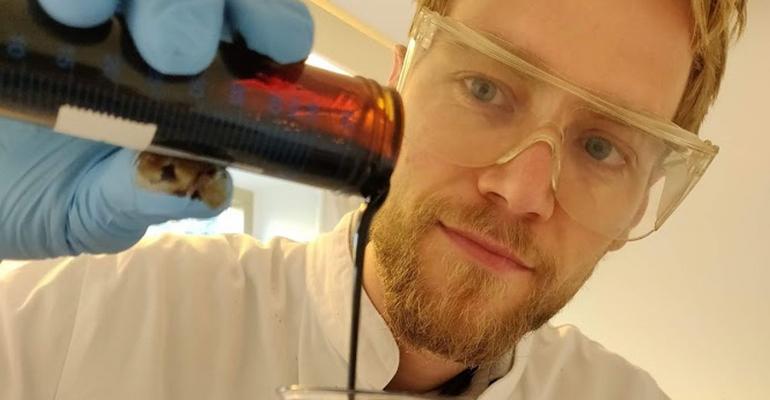The shipping players and their major customers, together with Copenhagen University, will form the LEO Coalition to explore the environmental and commercial viability of LEO fuel – the lignin and ethanol blend – for shipping.
“Shipping requires bespoke low carbon fuel solutions which can make the leap from the laboratory to the global shipping fleet. Initiatives such as the LEO Coalition are an important catalyst in this process,” said Soren Toft, coo of Maersk.
Lignin is a structural bio-polymer which contributes to the rigidity of plants. Lignin is isolated in large quantities as a byproduct of lignocellulosic ethanol and pulp and paper mills. Currently, it is often incinerated to produce steam and electricity.
Copenhagen University is currently running the laboratory-scale development of this potential marine fuel. The project aims to move into phase II on testing the fuel on actual vessel engines in the second quarter of 2020.
Following a successful phase II, phase III will begin with the scaling up of LEO fuel production.
“Clearly, LEO would be a great step forward for supply chain sustainability, and it has the potential to be a viable solution for today’s fleet, and not just a future vision,” said Craig Jasienski,ceo of Wallenius Wilhelmsen.
Helena Helmersson, coo at H&M Group, highlighted that climate change is an ongoing reality and a key challenge to all industries, including fashion.
“We are aware of our responsibility to stay within the planetary boundaries and are committed to reduce our impact in every aspect of our value chain, including how our products are shipped to consumers around the world. This coalition gives us the opportunity to explore the development of a low-carbon fuel for shipping today,” she commented.
Today, shipping accounts for 2-3% of global carbon dioxide (CO2) emissions, a proportion that is expected to increase as global trade continues to grow at a sluggish but steady pace.
Copyright © 2024. All rights reserved. Seatrade, a trading name of Informa Markets (UK) Limited. Add Seatrade Maritime News to your Google News feed.


